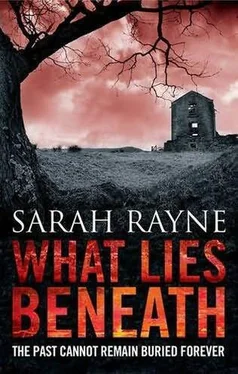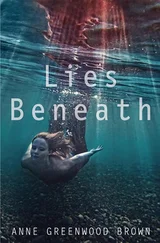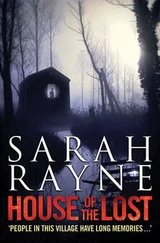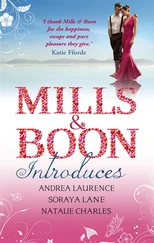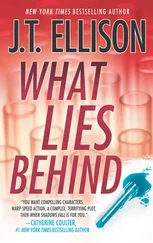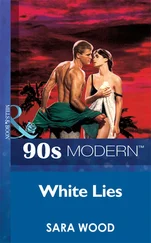The quiz was fairly predictable, and Clem’s table managed to scrape second place, although Amy never found out what the prizes were. She had gone up to the bar to ask where their food was, when she caught sight of Dr Malik coming out of the pub’s tiny dining room. He was carrying a book and a sheaf of papers, and Amy had a sudden image of him eating his dinner with the book propped up against the salt cellar, oblivious to his surroundings. She watched him walk across to the stairs and wondered if she should try to catch his eye. She would like to tell him she had listened to the music they had discussed. Perhaps he would not want to know, though.
As if suddenly aware of being watched, he looked round. Amy smiled and Dr Malik hesitated as if unsure who she was. Then he seemed to remember, and smiled back. He appeared to consider what to do next, then instead of going upstairs, presumably to his room, he came across to the edge of the bar.
‘Hello,’ said Amy. ‘We met at the lecture the other night.’
‘I know. Second year, Durham University, yes?’ His voice was as nice as she remembered.
‘Yes. You told me about a piece of music based on a Goldsmith poem.’
‘ The Deserted Village . Yes, of course.’
‘Well, I was interested because I’ve been helping with an exhibition of Old Bramley and I managed to find the recording in the library. It’s a bit scratchy and bumpy, isn’t it?’
‘It’s a very old recording,’ he said, as if wanting to defend the music.
‘It sounded it. I liked it,’ said Amy, ‘although it isn’t the kind of thing I normally listen to.’
For some reason this made him smile, and his face stopped being serious and became much younger and slightly mischievous. ‘I can believe that,’ he said. ‘But I’d be interested in your reactions – specially if you’re delving into Priors Bramley’s past.’
‘I am, a bit.’ Was he going to ask her to have a drink? If so Amy might as well take him up on it.
He said, ‘I expect you’re here with somebody, but if you’ve got ten minutes to talk about the village and the music…’ He looked round the bar vaguely. ‘We could go into the other room where it’s quieter.’
It had not occurred to Amy that it was particularly noisy in the bar, but she said, ‘I was with the pub quiz – I mean, I was with somebody’s table.’ This sounded so garbly she was annoyed with herself, and she said firmly. ‘OK, thanks. I’ll just tell them to hurry up with the food, then I’ll be out.’
‘I’ll get you a drink. What do you have?’ He said this a bit warily as if he thought she might ask for vodka laced with E.
‘House red?’ said Amy, and saw the flicker of relief.
His name was Jan Malik, and the book, which he propped on the edge of their table, was a hefty volume about early church music.
‘Clem – that’s Clem Poulter from the library, I think you met him – told me you were here because of St Anselm’s,’ said Amy, seeing the book.
‘Yes, mostly. But I’m also interested in music and literature echoing its surroundings,’ he said.
‘Priors Bramley and The Deserted Village .’
‘Yes. Not necessarily serious or obscure music, though. Modern stuff sometimes has a remarkable way of conveying a sense of place. Heavy metal often does it.’
Amy was so fascinated to hear someone who looked like a Pre-Raphaelite poet talk about heavy metal, she forgot to drink her wine.
‘And St Anselm’s is interesting on its own account anyway,’ said Jan. ‘It’s an ancient church and it has quite an unusual history of music.’
‘How old is ancient?’
‘Well, there’re a couple of mentions in one or two early monkish chronicles dating its origins to the early seventh century,’ said Jan. ‘And the church apparently had Ambrosian plainchant as part of the services until the late 1800s, which is why I’m curious about it. It’s rare to find Ambrosian chant used so recently – it’s virtually forgotten, except in Milan and parts of Lombardy. Occasionally I’ve taken postgraduate students to Italy to study it.’
Hell’s boots, thought Amy, another university don. Only this one wouldn’t quote Shelley, he would play music. She sent him a sideways glance and thought that despite his appearance, he would not be likely to lose his wallet when it came to paying for drinks or leave her to find her own way home in a taxi. Not that there were going to be any drinks bills or late-night taxis, of course. In any case he probably had a nice wife who taught Renaissance history or something, at an adjoining college.
Jan drank some of his wine, and said, ‘Sorry, Amy, I’m getting carried away with my own subject. Tell me what you thought of The Deserted Village .’
‘I liked it,’ said Amy. ‘I don’t know any of the technical stuff, and I haven’t read the poem it’s based on, but it dredged up images really well. At the start I could see Priors Bramley, with people living ordinary lives, farms and shops and church, all like an Agatha Christie book, or Cranford . And then,’ she said, warming to the theme, ‘there’s the bit where the music changes and starts to be quite menacing. I thought that’d be the feudal overlord stomping in, all droit de seigneur, grabbing village maidens and crunching up cottages. And the happy-milkmaid, kindly-shepherd rustic merriment dissolves, and in its place you get Edgar Allan Poe. Bats flitting through ruins and whatnot, and everything mouldering and decaying. The Fall of the House of Cadence.’
‘Like Priors Bramley,’ said Jan.
‘Yes. My gran can just remember everyone being booted out of the cottages and shops, and Clem Poulter had a great-aunt who’d lived there all her life. I know there’d have been compensation and rehousing,’ said Amy, ‘but it’s still anger-making, isn’t it?’
‘I’d like to talk to your grandmother to see what she remembers,’ said Jan Malik. ‘But it sounds as if it all mirrors Goldsmith’s poem. That was written as a kind of a reaction to the Enclosure Act. In a lot of areas Enclosure forced a mass emigration of the poorer farming families into the cities. In the poem, only one person is left in the village of Auburn – an old widow, forced to gather watercress for food and brushwood to keep warm, but the one person left who knows its history and could pass on the tales.’
‘That’s seriously sad,’ said Amy, after a moment. ‘Good thing it’s only fiction.’
‘Is it, though?’ said Jan softly. ‘They found a body in Priors Bramley, didn’t they?’
Amy stared at him, and for a moment something cold and unpleasant seemed to brush the back of her neck. ‘But that was just someone who got stuck there – a tramp who passed out in a drunken stupor and wasn’t noticed because nobody knew about him.’
‘I wonder if that’s all he was,’ said Jan. ‘What if he was “the sad historian of the pensive plain”?’
‘Listen, if you’re going to quote at me – because I suppose that was a quote – I’d better get another drink,’ said Amy very firmly, because she was not sure she could cope with sad souls who scraped their sustenance from watercress (watercress, for pity’s sake!) or ancient historians dying in crumbling manor houses.
She got two more glasses of wine and carried them back to the table. Jan lifted his with a half-salute that might have been apology or merely thanks.
Amy said, ‘I found photos of Priors Bramley before they infected it with Geranos. There’s a really good one of St Anselm’s and some of Cadence Manor.’
He appeared to accept the change of mood. ‘Can I see the photos sometime?’
‘Yes, of course.’
‘And,’ he said, ‘after that masterly precis you gave me of the music and the village, I’ve got to ask what you’re reading at Durham.’
Читать дальше
